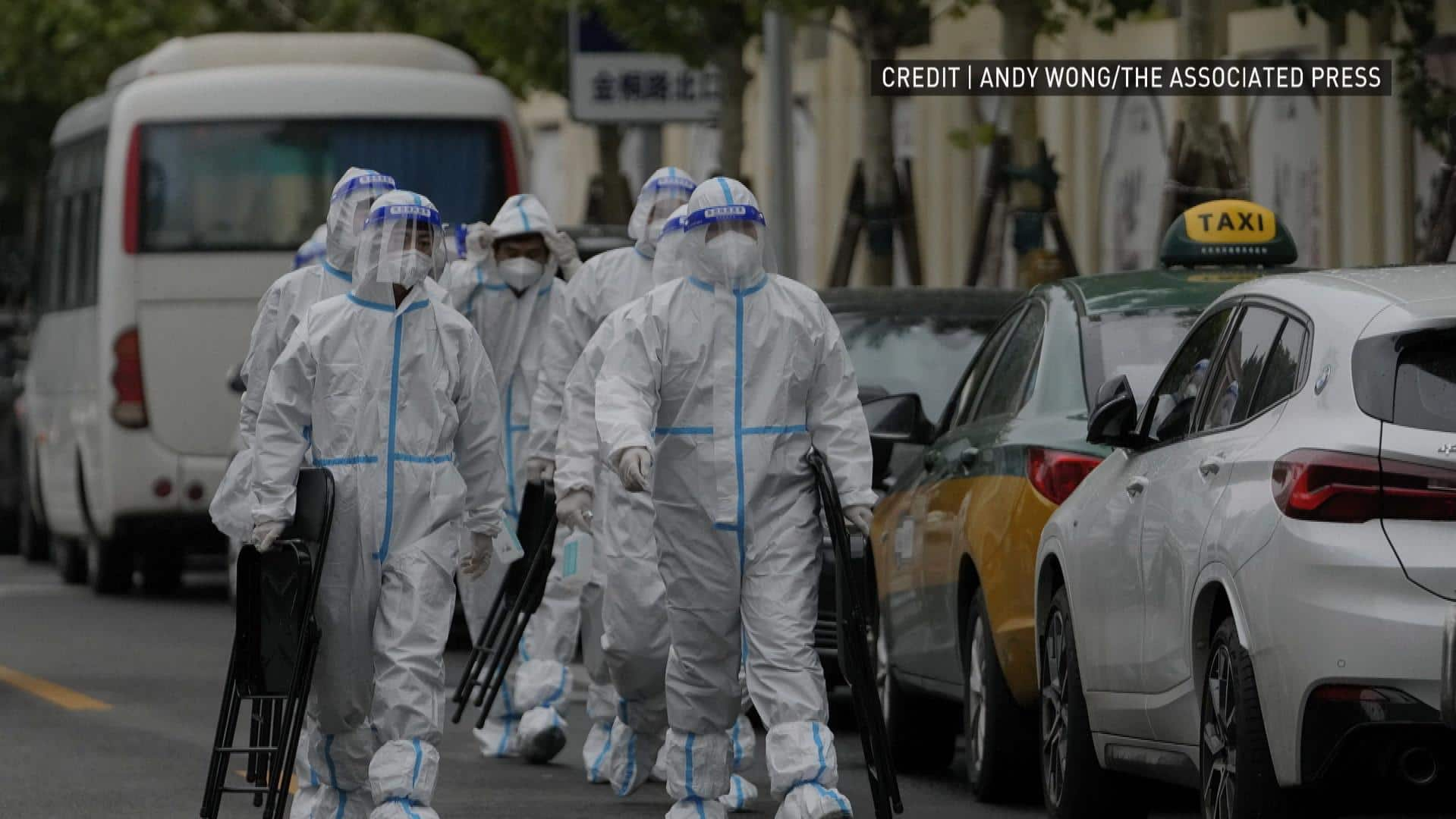The head of the World Health Organization said on Tuesday China’s zero-tolerance COVID-19 policy is not sustainable given what is known of the disease, in rare public comments by the United Nations agency on a government’s handling of the virus.
“We don’t think that it is sustainable considering the behaviour of the virus,” WHO Director-General Tedros Adhanom Ghebreyesus told a media briefing.
Speaking after Tedros, WHO emergencies director Mike Ryan said the impact of a “zero-COVID” policy on human rights also needs to be taken into consideration alongside the effect on a country’s economy.
He also noted that China has registered 15,000 deaths since the virus first emerged in the city of Wuhan in late 2019 — a relatively low number compared with 999,475 in the United States and more than 500,000 in India.
With that in mind, it is understandable that one of the world’s most populous countries would want to take tough measures to curb coronavirus contagion, Ryan said.
WHO guidelines have never recommended mass screening of asymptomatic individuals — as is currently happening in China — because of the costs involved and the lack of data on its effectiveness.
Still a ‘critical period’: Chinese authorities
China’s zero-COVID-19 policy has drawn criticism ranging from scientists to its own citizens, leading to a cycle of lockdowns of many millions of people. Under the policy, authorities lock down large population areas to stamp out viral spread in response to any coronavirus outbreak, even if just a small number of people test positive.
Shanghai, with a population of 25 million, was enduring its sixth week of a city-wide lockdown.
China needs to shift away from its current strategy of trying to completely eliminate COVID-19 and show some respect for people’s rights, said the World Health Organization’s emergencies program lead, Mike Ryan. 0:58
Shanghai’s measures have been particularly strict, with residents allowed out of compounds only for exceptional reasons, such as a medical emergency. Many are not even allowed out of their front doors to mingle with neighbours.
Its quarantine policy has also been criticized for separating children from parents and putting asymptomatic cases among those with symptoms.
Beijing reported 59 new local COVID-19 cases during the past 24 hours, a disease control official there said on Tuesday.
The city had reported a total of 836 local COVID-19 cases as of 3 p.m. local time Tuesday since April 22, Pang Xinghuo, deputy director at the Beijing Municipal Health Commission, told a news briefing.
The capital has not seen its daily case numbers grow beyond several dozen since its latest outbreak began on April 22. But it has also found it difficult to bring them down significantly.
The number of new COVID-19 cases in Shanghai has been falling for almost two weeks, but remains in the thousands and restrictions are tightening.
“We are still in a critical period of epidemic prevention,” said Sun Xiaodong, deputy director of the Municipal Centre for Disease Control.
Major economic impact
China has been hampered by the fact its strict pandemic-long approach left the population with little acquired immunity through infection, with the highly transmissible Omicron variants spurring infections. In a contrast to what has been seen in most developed nations, the working age population has had higher rates of vaccination than the generally more vulnerable cohorts of seniors.
The approach its taking a heavy toll on the world’s second largest economy, with significant knock-on impacts on global trade and supply chains.
WATCH | Latest COVID-19 briefing Tuesday from WHO officials:
China’s export growth slowed to its weakest in almost two years, data showed on Monday. Unemployment was also near two-year highs.
U.S. automaker Tesla has halted most of its production at its Shanghai plant due to problems securing parts, according to an internal memo seen by Reuters. Tesla had planned as late as last week to increase output to pre-lockdown levels by next week.
Among Tesla suppliers facing difficulties is wire harness maker Aptiv after infections were found among its employees, sources said on Monday.





